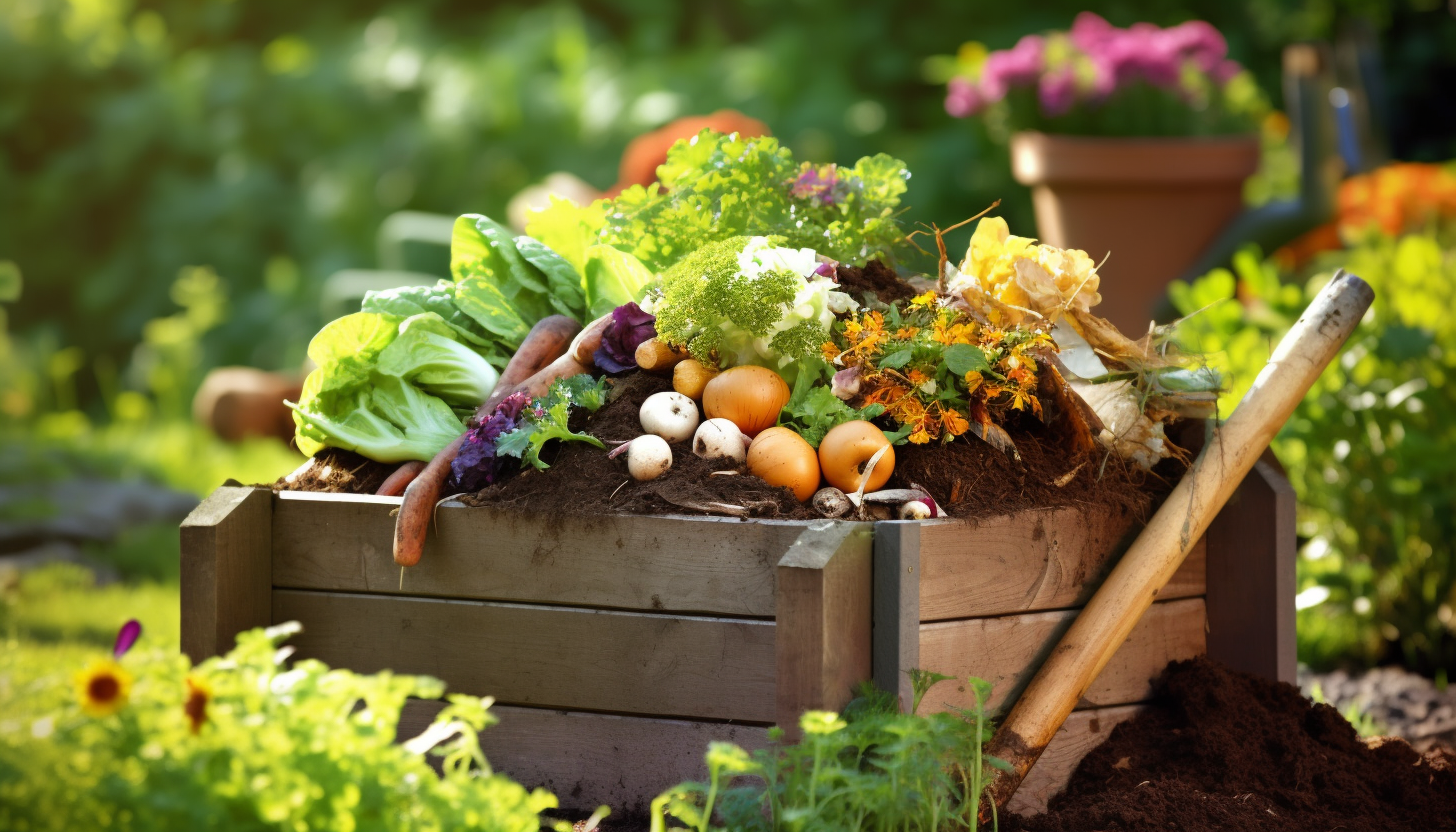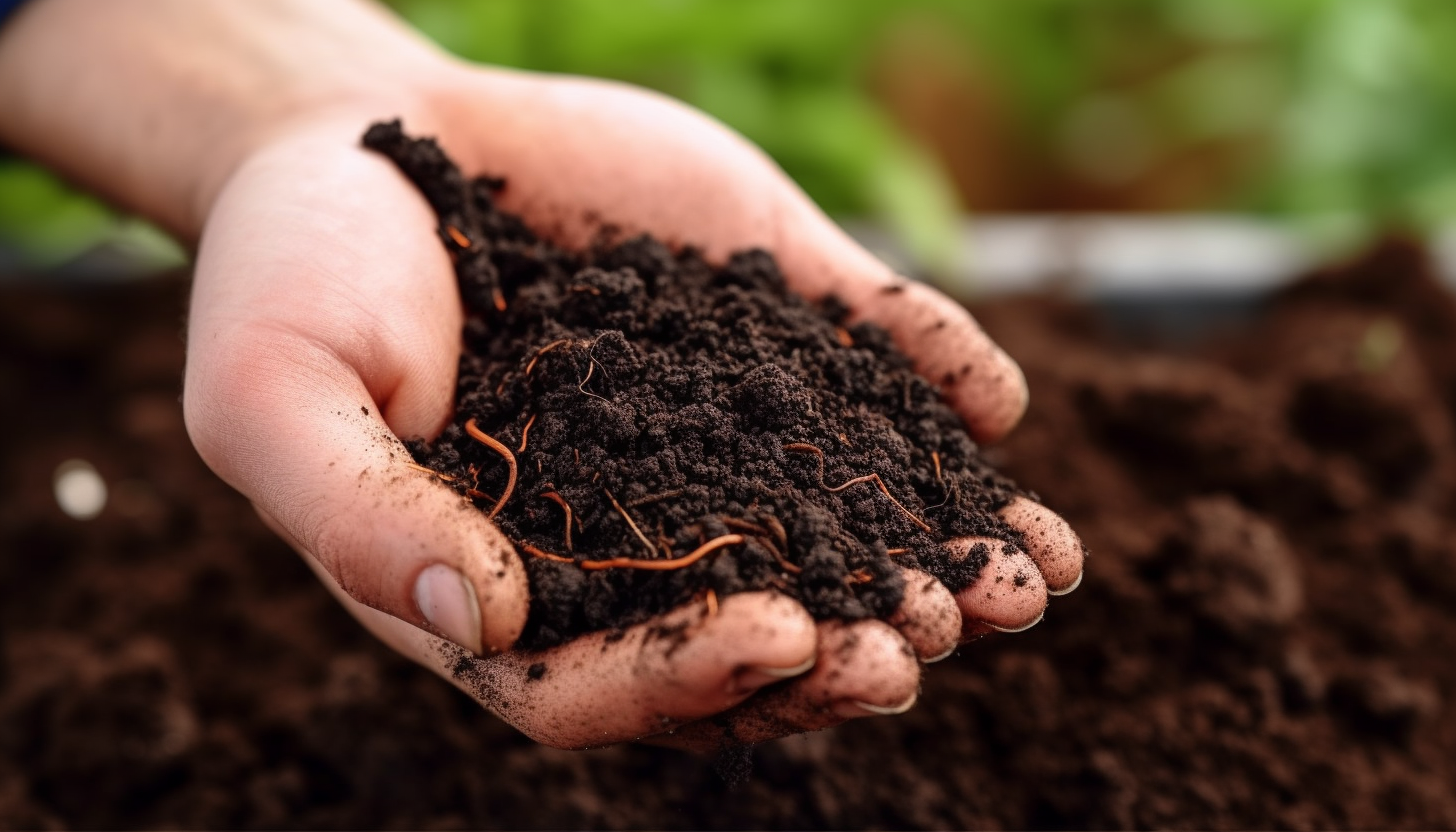P
May 28, 2023
The Benefits of Composting for Gardeners
#Composting
#Gardening
#Soil Health
#Plant Growth
#Waste Reduction
#Composting Techniques
#Compost Sources
#Nutrient Cycling
#Soil Structure
#Plant Nutrition
#Sustainability
#Landfill Waste
#Environmental Footprint
#Biodiversity

benefits-of-composting-thumbnail
The Importance of Composting for Gardeners
Composting is a process that involves the transformation of organic waste into a nutrient-rich soil amendment. It is a crucial practice for gardeners and farmers alike, as it improves soil health, reduces waste, and cycles essential nutrients. The benefits of composting for gardeners are numerous, ranging from improved soil structure, better plant growth, and reduced environmental footprint. One of the primary benefits of composting is the improvement of soil health. Healthy soil is the foundation of a thriving garden. It provides a stable environment for plant roots, promotes better water and nutrient uptake, and can improve the structure and drainage of your soil. Composting improves the structure of your soil by adding vital organic matter. Organic matter acts as a sponge, absorbing and retaining moisture, while providing a stable environment for beneficial soil microbes. These microbes, in turn, release nutrients to plants more slowly, reducing the need for frequent fertilizing. Composting also improves the fertility of your soil by adding essential nutrients. As microorganisms in compost feed on organic matter, they release nitrogen, phosphorus, and other essential minerals that plants need. Composting techniques can vary greatly, and the choice of method can depend on factors such as available space, resources, and preferred speed. One of the simplest methods is to simply pile organic waste in a designated area, mixing it every few weeks or months as it decomposes. This method is known as 'bin composting.' Another popular method is 'vermicomposting,' which involves the use of earthworms to help break down organic matter. There are also numerous mechanical composting machines that can make the process faster and more efficient. However, no matter which method you choose, the end result will be rich, nutrient-rich compost that can be used to improve the health of your soil.
Waste Reduction and the Environmental Footprint
Composting also contributes to waste reduction and environmental sustainability. By turning organic waste into a valuable resource, you're reducing the amount of waste that ends up in landfills or the environment. Additionally, the use of compost instead of chemical fertilizers can reduce your garden's environmental footprint. Composting can also contribute to biodiversity in your garden and surrounding environment. By encouraging the growth of diverse microorganisms in your compost, you're supporting a wide range of species, promoting a more balanced and healthy ecosystem. Composting can also help to promote biodiversity in your garden by providing a rich source of organic matter for your plants. This can support a wide range of plant species, promoting biodiversity in your garden. As a gardener, it's important to remember that your actions can have a significant impact on the environment. By practicing composting, you're not only improving the health of your soil, but you're also reducing your garden's environmental footprint. Composting can be a simple yet effective strategy for gardeners to promote soil health, reduce waste, and contribute to environmental sustainability.
Nutrient Cycling and Soil Structure
Composting also promotes nutrient cycling in your garden. As organic matter decays in your compost, it releases nutrients back into your soil. These nutrients can then be taken up by your plants and cycled through your soil, improving its health over time. Composting also improves the structure of your soil. As organic matter breaks down, it creates a crumbly, porous texture that can improve the drainage and aeration of your soil. This improved soil structure can promote better root growth, resulting in healthier plants. The benefits of composting for gardeners go beyond improving soil health. It can also help to improve the structure of your soil, promoting better plant growth. Soil health isn't static; it's a constantly evolving and dynamic system. By practicing composting, you're fostering a healthy ecosystem in your garden soil, promoting better plant growth and improved soil structure.


